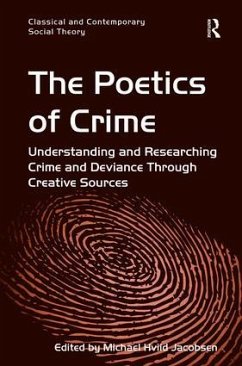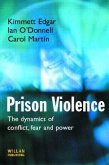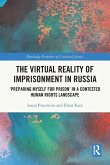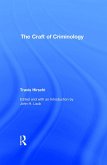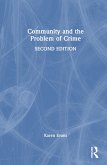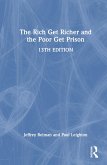The Poetics of Crime is an invitation to reconsider and reimagine how criminological knowledge may be creatively and poetically constructed, obtained, corroborated and applied. Departing from the conventional understanding of criminology as a discipline concerned with refined statistical analyses, survey methods and quantitative measurements, this book shows that criminology can - and indeed should - move beyond such confines to seek sources of insight, information and knowledge in the unexplored corners of poetically and creatively inspired approaches and methodologies.
'The Poetics of Crime marks another step in the flow of criminology outward into other disciplines. Including chapters by major European criminologists, it identifies new and significant issues, constituting a charming and provocative volume that resets the contours of cultural, critical, and creative criminology.'- Nicole Rafter, Northeastern University, USA
'The Poetics of Crime provides an engaging collection of readings and is an important contribution to the literature on crime and criminological inquiry. The readings challenge disciplinary directives on research in criminology by demonstrating intriguing yet often overlooked approaches to the construction and evaluation of knowledge claims.'- Bruce DiCristina, University of North Dakota, USA
'This anthology contributes in an important way to the growing imaginative criminology movement. Those interested in the creative and innovative potential of the criminological imagination will want to read this book.'- Jon Frauley, University of Ottawa, Canada
'This book makes a very compelling case for utilizing more creative methods to achieve this endeavour, and in the process, it challenges us all to broaden and deepen our criminological imagination.'- Cormac Behan, University of Sheffield, Probation Journal
'The Poetics of Crime provides an engaging collection of readings and is an important contribution to the literature on crime and criminological inquiry. The readings challenge disciplinary directives on research in criminology by demonstrating intriguing yet often overlooked approaches to the construction and evaluation of knowledge claims.'- Bruce DiCristina, University of North Dakota, USA
'This anthology contributes in an important way to the growing imaginative criminology movement. Those interested in the creative and innovative potential of the criminological imagination will want to read this book.'- Jon Frauley, University of Ottawa, Canada
'This book makes a very compelling case for utilizing more creative methods to achieve this endeavour, and in the process, it challenges us all to broaden and deepen our criminological imagination.'- Cormac Behan, University of Sheffield, Probation Journal
'The Poetics of Crime marks another step in the flow of criminology outward into other disciplines. Including chapters by major European criminologists, it identifies new and significant issues, constituting a charming and provocative volume that resets the contours of cultural, critical, and creative criminology.'- Nicole Rafter, Northeastern University, USA
'The Poetics of Crime provides an engaging collection of readings and is an important contribution to the literature on crime and criminological inquiry. The readings challenge disciplinary directives on research in criminology by demonstrating intriguing yet often overlooked approaches to the construction and evaluation of knowledge claims.'- Bruce DiCristina, University of North Dakota, USA
'This anthology contributes in an important way to the growing imaginative criminology movement. Those interested in the creative and innovative potential of the criminological imagination will want to read this book.'- Jon Frauley, University of Ottawa, Canada
'This book makes a very compelling case for utilizing more creative methods to achieve this endeavour, and in the process, it challenges us all to broaden and deepen our criminological imagination.'- Cormac Behan, University of Sheffield, Probation Journal
'The Poetics of Crime provides an engaging collection of readings and is an important contribution to the literature on crime and criminological inquiry. The readings challenge disciplinary directives on research in criminology by demonstrating intriguing yet often overlooked approaches to the construction and evaluation of knowledge claims.'- Bruce DiCristina, University of North Dakota, USA
'This anthology contributes in an important way to the growing imaginative criminology movement. Those interested in the creative and innovative potential of the criminological imagination will want to read this book.'- Jon Frauley, University of Ottawa, Canada
'This book makes a very compelling case for utilizing more creative methods to achieve this endeavour, and in the process, it challenges us all to broaden and deepen our criminological imagination.'- Cormac Behan, University of Sheffield, Probation Journal

